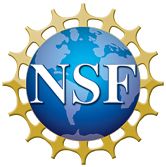Hinckley et al., 2016
Optimizing available network resources to address questions in environmental biogeochemistry.
Hinckley, E-L, Anderson, SP, Baron, JS, Blanken, PD, Bonan, G., Bowman, WD, Elmendorf, S, Fierer, N, Fox, A, Goodman, K, Jones, K, Lombardozzi, D, Lunch, C, Neff, J, SanClements, M, Suding, K, and Wieder, W (2016)
BioScience, Volume 66, Issue 4, 1 April 2016, Pages 317–326,
-
Boulder, INVESTIGATOR
-
Boulder, INVESTIGATOR
-
Boulder, INVESTIGATOR
-
Boulder, ADVISORY BOARD
Abstract
An increasing number of network observatories have been established globally to collect long-term biogeochemical data at multiple spatial and temporal scales. Although many outstanding questions in biogeochemistry would benefit from network science, the ability of the earth- and environmental-sciences community to conduct synthesis studies within and across networks is limited and seldom done satisfactorily. We identify the ideal characteristics of networks, common problems with using data, and key improvements to strengthen intra- and internetwork compatibility. We suggest that targeted improvements to existing networks should include promoting standardization in data collection, developing incentives to promote rapid data release to the public, and increasing the ability of investigators to conduct their own studies across sites. Internetwork efforts should include identifying a standard measurement suite—we propose profiles of plant canopy and soil properties—and an online, searchable data portal that connects network, investigator-led, and citizen-science projects.
Citation
Hinckley, E-L, Anderson, SP, Baron, JS, Blanken, PD, Bonan, G., Bowman, WD, Elmendorf, S, Fierer, N, Fox, A, Goodman, K, Jones, K, Lombardozzi, D, Lunch, C, Neff, J, SanClements, M, Suding, K, and Wieder, W (2016): Optimizing available network resources to address questions in environmental biogeochemistry . BioScience, Volume 66, Issue 4, 1 April 2016, Pages 317–326,. DOI: 10.1093/biosci/biw005
 This Paper/Book acknowledges NSF CZO grant support.
This Paper/Book acknowledges NSF CZO grant support.
Explore Further




